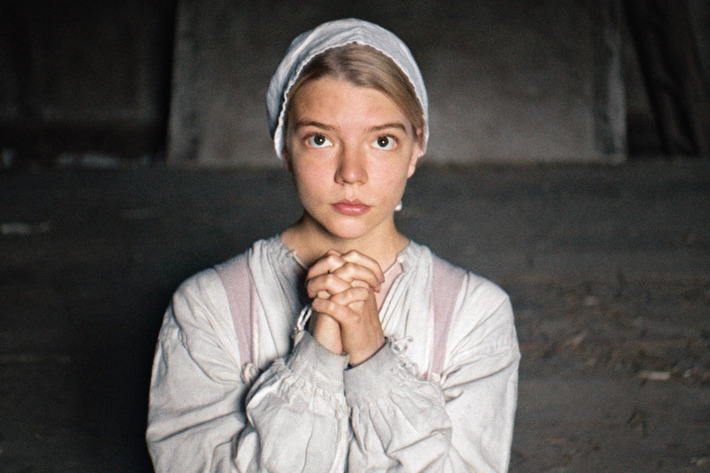
That
a horror film can be considered intelligent is a fact taken for granted
today; but it hasn’t always been so. The horror genre has a bit of a
spotty history when it comes to receiving respect and the requisite
funding needed to earn that esteem. In the early days of cinema, horror
films tended to be kept out of the celebratory spotlight and relegated
to the corner of the public stage normally reserved for various
sideshows. While careening from sensationalism to extravagance to camp
to outright silliness, Scare fare has persistently sought equal footing
in the cinematic market.
With
the passing years has come increased acclaim for the horror films that
strive to “get it right,” and many of these now rank among the most
elite movies. The 21st century has carried on that trend, and produced a
number of classic entries into the horror canon. Here are ten of the
smartest and most elegant efforts of the current century’s first twenty
years.
10. A Dark Song (2016) – Liam Gavin
In
a genre overflowing with oversimplified and dumbed down magic, A Dark
Song stands out from the crowd. A quintessential example of a thinking
person’s horror film, it spells out its magic in the best possible way –
not by watering it down, but rather by presenting it in as much
thorough detail as a movie script can contain. In fact, it’s one of the
most accurate presentations of ritual magic ever put on screen.
A
grieving mother hires an occultist to help her contact the ghost of her
dead son, and the two move to an isolated house to begin a months-long
magic ritual. At the end of the rigorous rite, the occultist promises,
the mother will gain her wish. The magical process turns out to be
difficult and exhausting, and after several months tempers start to
flare and isolation takes its toll. The magic will get results, but can
the pair stick with the program carefully enough to get the results they
want? Either way, A Dark Song builds to an unforgettable climax that’s
worth the wait.
9. The Village (2004) – M. Night Shyamalan
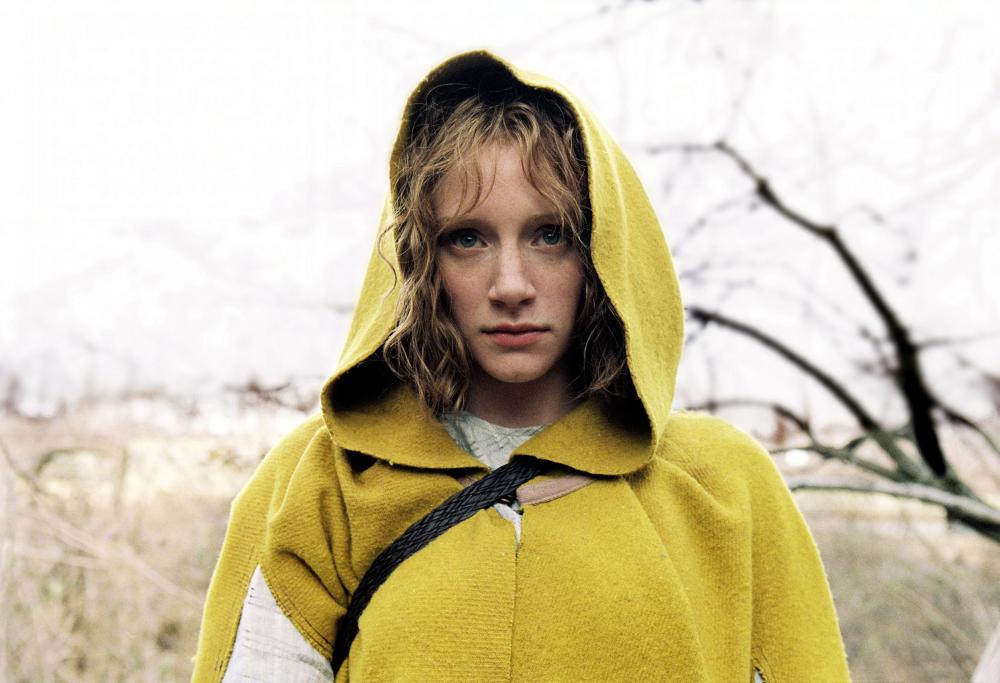
Though
scores of self-styled horror critics dismissed The Village for failing
to live up to their own preconceived notions of what it should be, many
serious students of cinema recognized that it contains more than meets
the eye.
Those willing to approach the film on its own substantial merits will
find a remarkably astute analysis of the psychology of fear and the
mechanisms of cult control. Couple these intelligent themes with an
engaging storyline, and the result is one of the smartest recent films
in the horror genre.
The
setting is a quiet village in the woods where residents live a simple
rural existence. All seems idyllic, but we soon learn that the woods
surrounding the village are home to terrifying creatures which the
villagers live in constant fear of.
The locals have formed a truce with the creatures based on humans
staying out of the woods, but when one of their own becomes dangerously
sick the villagers have to find medicine somewhere. The situation leads
to a confrontation with the creatures which challenges the worldview of
all who live in the village.
8. The VVitch (2015) – Robert Eggers
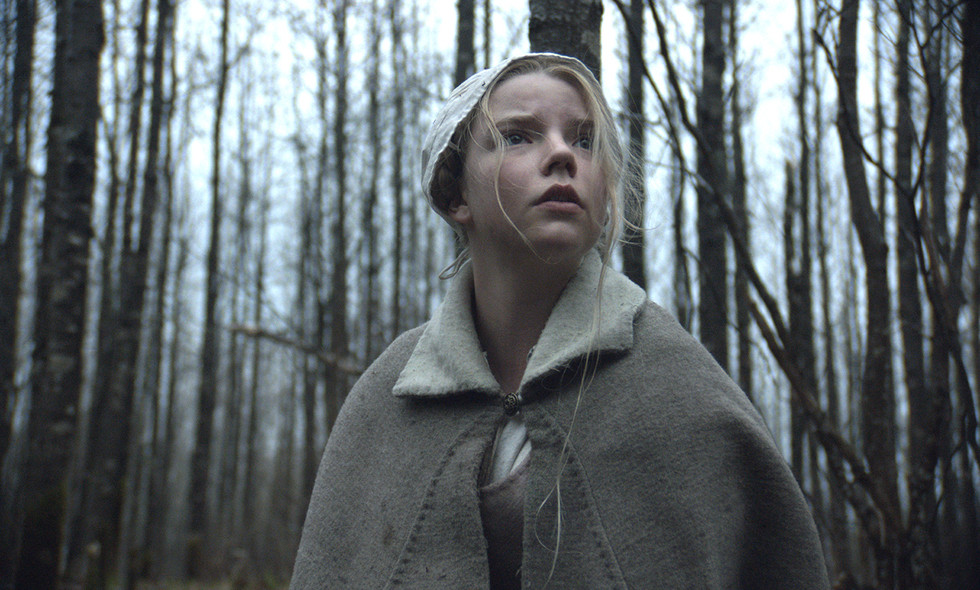
The
Witch has a decidedly retro horror feel while still managing to succeed
as a modern classic. Refusing to compromise its own voice, it’s a film
that escapes easy categorization and description. What’s certain is that
The Witch is understated and elegant while remaining genuinely
unsettling. Through its choice of language, which is minimalistic and
eloquent, the movie immediately pulls the viewer into its own universe,
where anything is possible.
In
17th century New England, a local family decides to leave their insular
church congregation and start a new life outside the community. The
church elders declare that evil and trouble will certainly follow the
family, and when things start to go wrong, appearances agree.
When
a tragedy befalls the secluded family, suspicions flare among the
family members, and even accusations of witchcraft start to fly. Has the
family in fact been cursed, or has isolation loosened their grip on
reality? Waiting to discover the answer is a cinematic pleasure in The
Witch.
7. The Wailing (2016) – Na Hong-jin
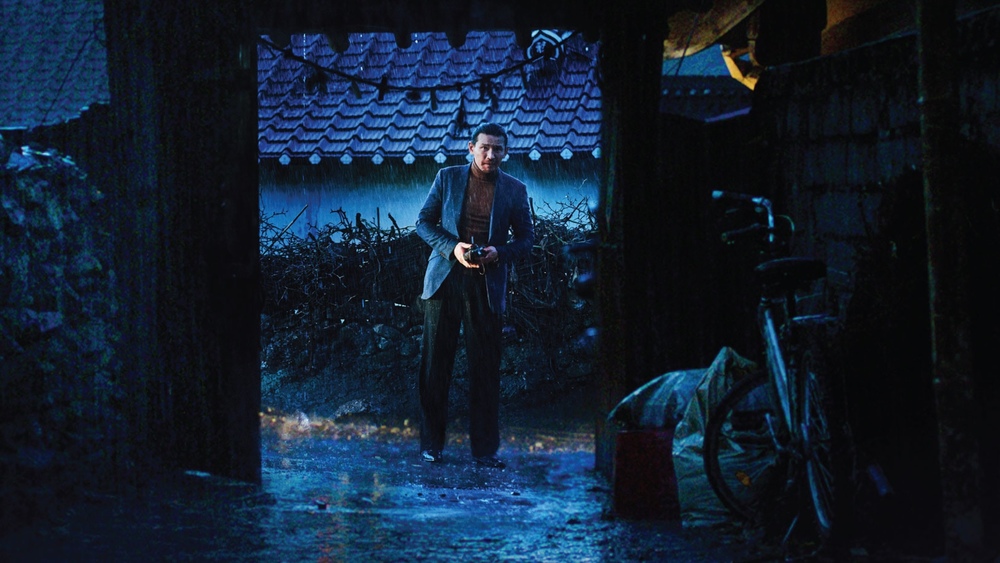
When
a Japanese man comes to live in a South Korean town, he keeps to
himself and lives a quiet life. But, coinciding with his arrival, a
strange sickness breaks out in the village, and the stranger comes under
immediate suspicion. A police investigator tackles the case with an
open mind, but is quickly deluged with wild stories about the mysterious
newcomer. As the body count increases, paranoia and fear threaten the
sanity and the lives of all involved.
This
South Korean film delivers its terror with a double-edged sword: not
only does it depict genuinely frightening physical events, it also dives
into the dangerous psychological realms of paranoia and suspicion.
Delving into themes of Eastern mythology, The Wailing shows itself to be
a supremely literate movie while still unleashing plenty of frights
upon those who dare to undertake a viewing.
6. The Devil’s Backbone (2001) – Guillermo del Toro
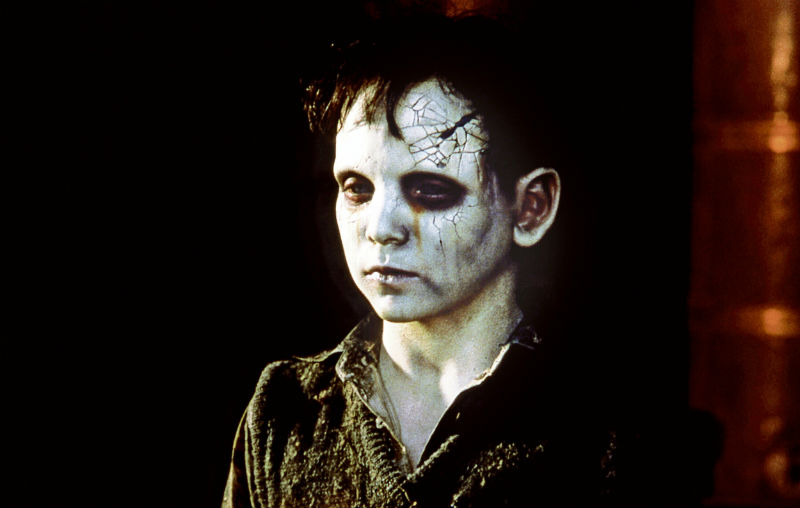
Horror
master Guillermo del Toro helped to build his considerable reputation
with this chilling classic. As always, del Toro’s horror film is both
stylish and terrifying, with neither quality being diminished by the
presence of the other. And while its message, partly relating to the
events of the Spanish Civil War, is undeniably intelligent, The Devil’s
Backbone never sacrifices the importance of the narrative at hand.
The
Devil’s Backbone presents a young orphan boy named Carlos who is sent
to the Santa Lucia School for training and care. The tenants of the
school are a mixture of kindness, apathy, and hostility, but Carlos soon
realizes that his new home houses dangerous secrets. The ghost of
another boy stalks the halls, and may hold answers to the mysteries of
the school.
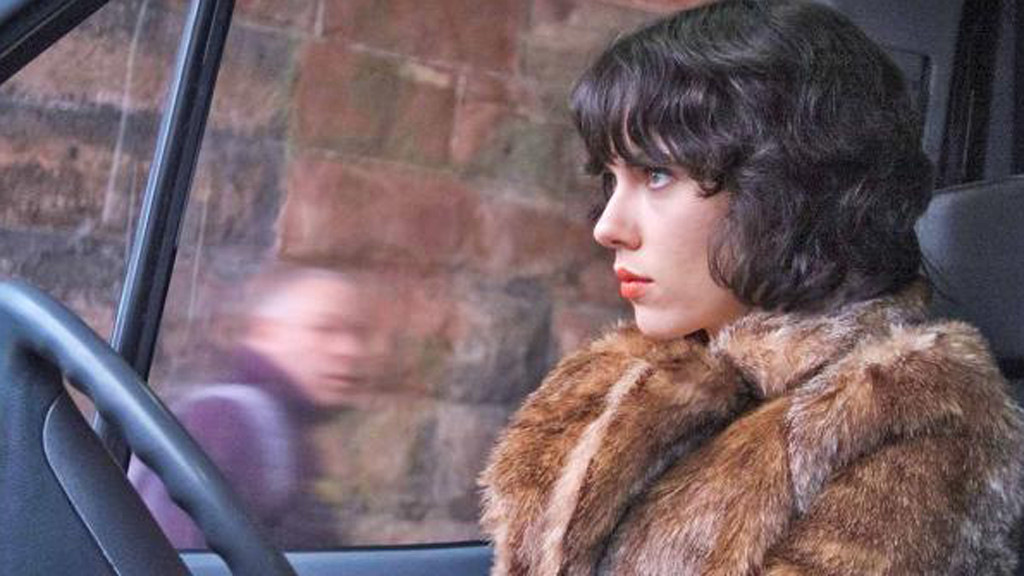
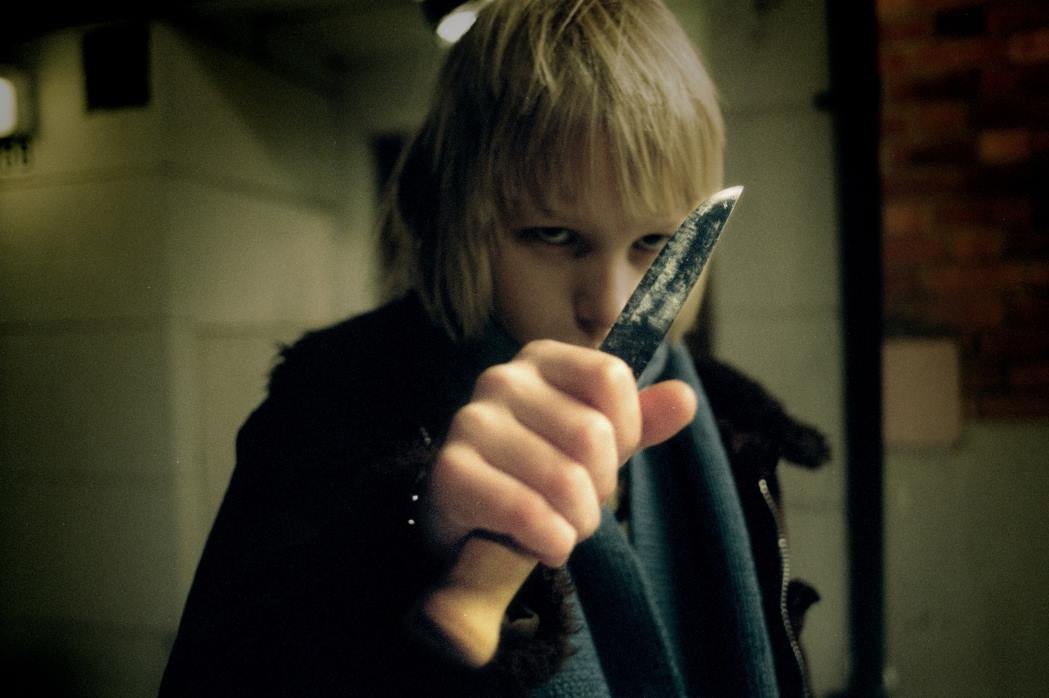
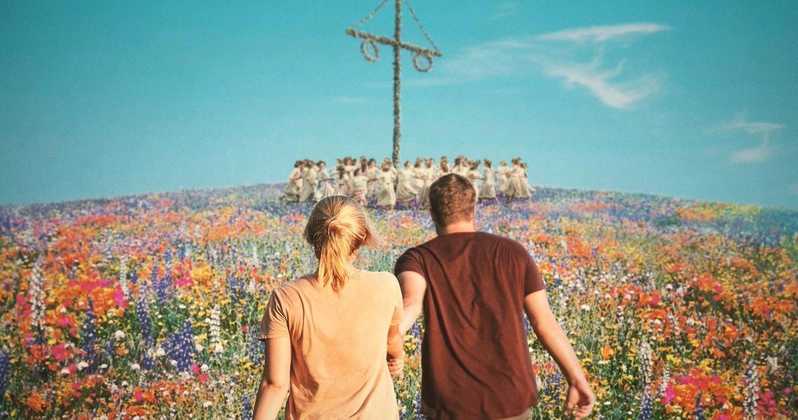
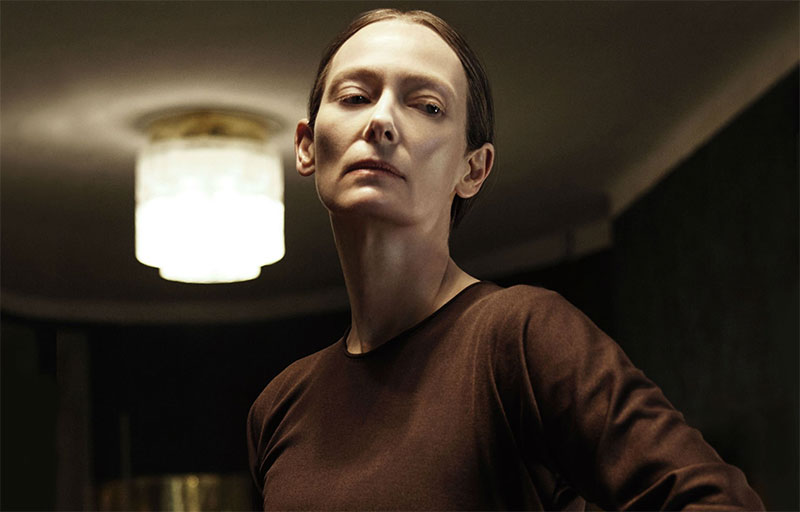
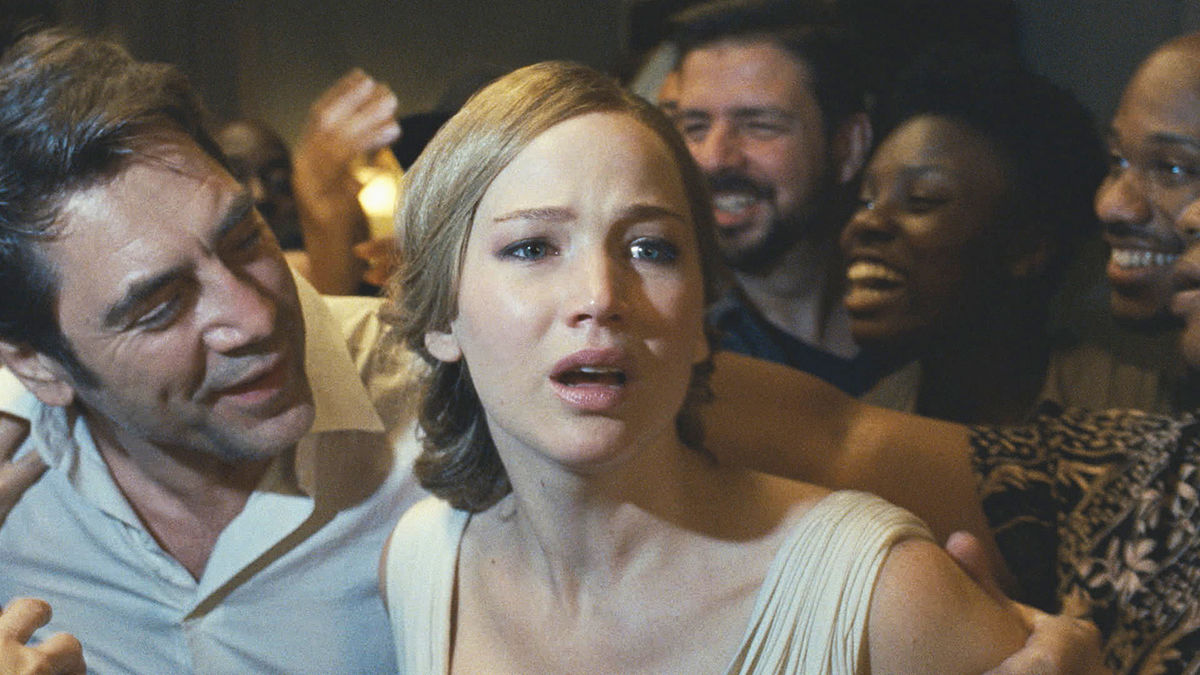
5. Under the Skin (2013) – Jonathan Glazer

Jonathan
Glazer’s enigma of a film is one sure to get under your skin – but only
after it blows away all your expectations. With a story as seductive as
its mysterious protagonist, Under the Skin explores brave new cinematic
territory and makes no apologies for its ambitious vision.
If the idea of an otherworldly creature (disguised as Scarlett
Johansson) driving around the Scottish countryside in a van and luring
men into her vehicle sounds intriguing, then this is the movie for you.
But
it’s not only the boldness of its plot that makes Under the Skin a
modern classic; it’s also the deftness of its direction and the skill of
its execution. This is understated directing at its finest, with
director Jonathan Glazer content to withdraw from the forefront and let
the strength of the story carry the day. And Scarlett Johansson delivers
a career defining performance as the unfathomable stalker of human
prey.
Best
of all, Under the Skin knows that it’s a smart film, and refrains from
exposition and amateur efforts to explain either itself or its
meditation on human nature. An intensely horrific film that’s also the
definition of smart art, this is a movie to be intellectually and
emotionally experienced.
4. Let the Right One In (2008) – Tomas Alfredson

A
vampire film that barely references its topic, Let Me In takes
vampirism back to its roots – without the sexiness, the clichés, and the
glamour of what is essentially the life of a leech.
At the center of the story is a lonely, bullied 12-year-old boy who
strikes up a close friendship with and finds an emotional refuge in his
new neighbor – a girl who only makes her appearances at night. As the
two kids grow closer, it becomes apparent that the girl has something to
hide; her oddly specific rules about when and where she can go begin to
annoy her new friend who thought he had found a kindred spirit.
Let
Me In is a highly intelligent Swedish film that addresses a typically
sensational subject without sensationalism. It’s a movie made for adults
that takes an honest look at the concept of vampirism, and follows its
implications through to their logical conclusions. It’s also a touching
story about human loneliness and connection, viewed through the eyes of
two characters at sensitive stages in their lives.
3. Midsommar (2019) – Ari Aster

Carrying
the torch of folk horror in fine style, Midsommar burst onto the scene
in 2019. Following in the footsteps of the sub-genre’s classics like The
Wicker Man and Night of the Demon, Midsommar can hold its head high in
such elite company. Proving that the appeal of folk horror remains alive
in the 21st century, it’s a film with the potential to inspire future
followers of its own.
The
pastoral setting in Midsommar is Sweden, where a yearly festival has
drawn a young American couple for a visit. But (in case you didn’t see
it coming), things quickly take a darker turn for the couple. Finding
themselves in hostile territory, they embark upon a struggle for their
very lives. Midsommar is a gorgeous film, and it’s another intriguing
chapter in the career of director Ari Aster.
2. Suspiria (2018) – Luca Guadagnino

Fans
of Dario Argento’s 1977 classic, Suspiria, weren’t exactly pining for a
remake, but in 2018 they got one anyway. Argento’s fellow Italian
director, Luca Guadagnino, defied expectations by reworking the beloved
horror shocker for a new generation of moviegoers. Though the effort was
bound to be enormously divisive, the ambitious Suspiria “2.0” manages
to position itself as both respectful and rebellious… at once vintage
and visionary.
This
remake isn’t afraid to add considerable psychological depth to its main
characters. The Suzy Bannion who shows up on the steps of the Tanz
Dance Academy in this version has a detailed backstory and an unhappy
home which she hopes the academy and its inhabitants can replace.
Likewise,
Madame Blanc is a more fleshed out character who plays a crucial role
in the psychological development of Suzy. As for the suspected witches –
well, we see a lot more of their previously hidden nocturnal
activities. It’s a smart movie on its own, and as a remake of a beloved
classic Suspiria succeeds as well as we could have hoped.
1. Mother! (2017) – Darren Aronofsky

Darren
Aronofsky’s heavily allegorical film is one that divided audiences
across the world, and it’s easy to see why. However, few accused it of
not being a smart movie… though many may assert that it was a bit too
smart for its own good. But even if Mother! comes off a bit heavy-handed
in places, it’s undeniably an intelligent film ripe for analysis. The
fact that a wide variety of interpretations have been applied to the
story is itself a testament to the depth of its content – quality art
will always appear a little differently to each observer.
The
basic setup is a deceptively simple one, far removed from its obvious
allegorical implications. A married couple lives peacefully in a remote
house, without a neighbor in sight. But one day some surprise guests
show up at their door, bringing turmoil with them. Life in the house
escalates into a hellish whirlpool of chaos that has to be seen to be
believed. Mother! is a film with enormous social, philosophical, and
religious implications, and you’ll need to watch it twice.
Thanks http://www.tasteofcinema.com
Thanks http://www.tasteofcinema.com
No comments:
Post a Comment